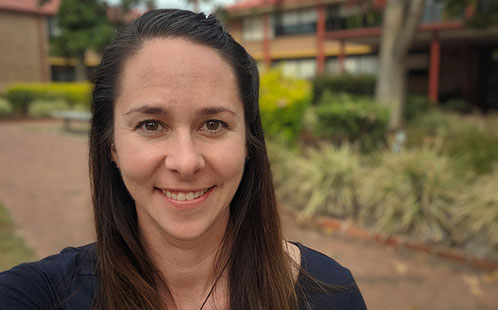Western Sydney University funding success for research into the survival of plants in heatwaves

Western Sydney University’s Dr Renée Marchin Prokopavicius from the Hawkesbury Institute of the Environment has been awarded an Australian Research Council (ARC) Discovery Early Career Researcher Award (DECRA), attracting more than $400,000 of funding for the University.
The project, Green or crispy: Which plants use transpiration to survive heatwaves? has been awarded $415,416 to investigate how a diverse range of trees use water to respond to increasingly high temperatures in experimental and natural conditions.
The DECRA scheme provides support for early career researchers in both research and teaching with a focus on partnerships and collaboration.
Dr Prokopavicius will use the world-class research facilities based at the Hawkesbury Institute for the Environment (opens in a new window) to study how heat stress affects a variety of native and exotic tree species. She will track how high summer temperatures impact water loss and tree cooling capacity to better understand current and projected tolerances to increasing heat.
"Climatic predictions for Australia in the next several decades indicate significant heatwave and high average temperatures, which will impose major stress on plants, humans and wildlife.
"Established trees can reduce local average temperatures significantly, but tree water use varies a lot by species, geographic origin and other factors. If we can better understand which species tolerate heat and drought through effective water use, we can select species that offer higher cooling potential and resilience in future climates, both natural and urban,” said Dr Prokopavicius.
Deputy Vice Chancellor Research and Innovation, Professor Deborah Sweeney said the funding is an endorsement of Western Sydney University’s reputation for undertaking world-class research and further highlights the University’s commitment to produce high-impact, future-focused research that will address current global challenges.
ENDS
15 November 2019
Mobile options:

